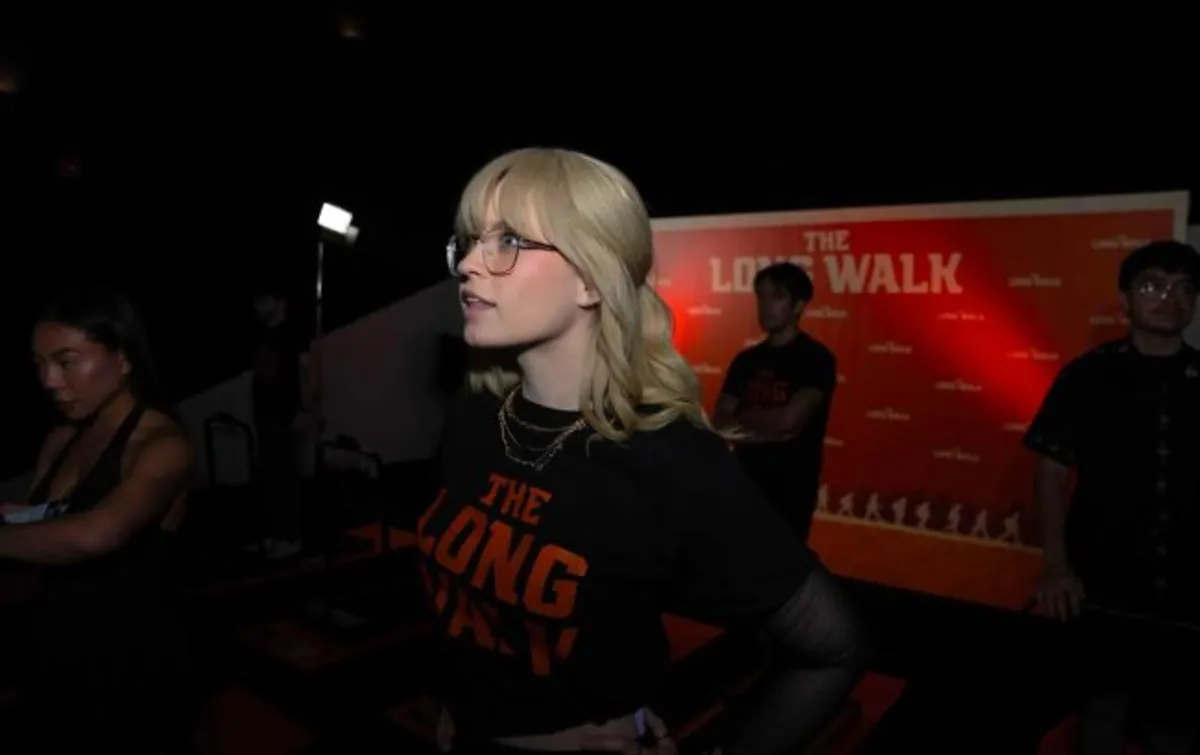
No one truly chooses “The Long Walk.” This poignant statement encapsulates the essence of Stephen King’s cult-hit horror novel, published in 1979. The story unfolds in a dystopian America, where a group of teenage boys supposedly “volunteers” for a fatal endurance test orchestrated by a fascist government. Initially released under the pseudonym Richard Bachman, “The Long Walk” is a significant entry in King’s oeuvre, as it was penned when he was just 19 and a student at the University of Maine. The wisdom embedded in his characters offers a glimpse into why King has achieved such monumental success over the years.
King’s narrative is punctuated with profound insights: “None of us really has anything to lose. That makes it easier to give away,” and “If people took it one day at a time, they’d be a lot happier.” These philosophies resonate deeply with readers, making “The Long Walk” a timeless exploration of human endurance and resilience. The emotional depth and psychological tension of the story became even more palpable when I experienced Lionsgate’s immersive film adaptation in theaters.
Participating in a unique early screening of “The Long Walk,” I found myself on a treadmill, marching alongside a dozen strangers in the dark. This immersive experience blurred the lines between viewer and participant, making me question whether I chose this event or if it chose me. Briana McElroy, head of worldwide digital marketing at Lionsgate Motion Picture Group, stated, “We wanted audiences to put themselves in these characters’ shoes, and watching people connect with that idea has been so, so exciting.”
During the screening at the historic Culver Theater in Los Angeles over Labor Day weekend, traditional seats were replaced with orange exercise equipment, creating an atmosphere akin to the grueling endurance test depicted in the film. The rules were deceptively straightforward: maintain a speed of three miles per hour to finish the movie. Fall below that threshold for even a second, and it would mean instant disqualification. This physical challenge added an exhilarating layer to the viewing experience, captivating audiences and allowing them to fully immerse in the narrative.
Directed by Francis Lawrence of “The Hunger Games” fame and penned by JT Mollner, “The Long Walk” is set to hit theaters nationwide on September 12. However, the treadmill experience was a one-time event that won’t be replicated with the film's general release. For those in the Los Angeles area, a special advanced screening with actress Judy Greer was held, further enhancing the excitement surrounding the film.
The treadmill setup not only served as a physical challenge but also heightened the emotional stakes of the film’s narrative. As the characters on screen faced their endurance trials, I felt my own stamina being tested, especially during the film’s most emotional sequences. The immersive nature of the event made it easy to forget the physical strain, as I became absorbed in the unfolding drama.
Throughout the screening, I experienced a range of emotions, from anxiety to empathy for the characters. McElroy noted, “I was very impressed with everybody and their stamina. Like, I’m crying, my eyes are blurry, and I just can’t imagine walking through it.” The film explores the harrowing journey of its protagonist, No. 47 Raymond Garraty, played by Cooper Hoffman, as he navigates a world filled with despair and competition, surrounded by friends and foes alike.
The adaptation of “The Long Walk” resonates with themes of choice and consequence, reflecting the struggles of its characters as they grapple with the oppressive forces of a dystopian society. The powerful performances and gripping narrative make this film a must-see for both Stephen King enthusiasts and new audiences alike.
As I exited the theater, I reflected on the unique blend of physical challenge and emotional storytelling that “The Long Walk” offers. It’s a film that not only entertains but compels viewers to examine their own resilience in the face of adversity. The buzz surrounding this adaptation is palpable, and the early reactions to the treadmill event have been overwhelmingly positive.
With its release just around the corner, “The Long Walk” promises to be a standout entry in the horror genre this year. As I pondered my experience, I couldn’t help but think of the memorable lines from the book, which perfectly capture the spirit of endurance and rebellion. For anyone seeking a gripping horror film that challenges both the body and mind, “The Long Walk” is a cinematic journey you won’t want to miss.